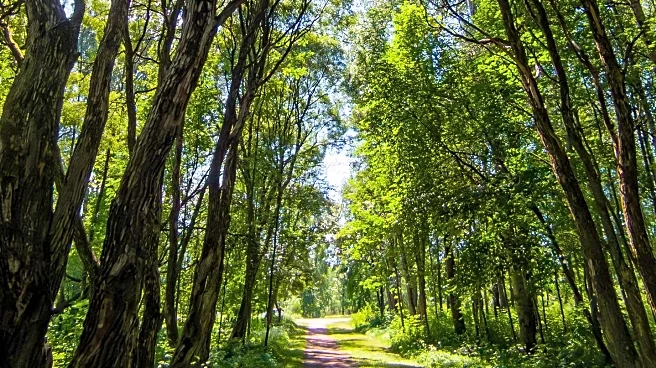What's Happening?
The Woodland Trust has implemented an innovative conservation project involving 'Frankenstein trees' to enhance wildlife habitats in UK woodlands. These trees, constructed from deadwood sourced from Kingsettle
Wood in Dorset, are strategically placed in Yonder Oak, Devon, to provide perches and habitats for birds of prey such as barn owls, sparrowhawks, and kestrels. The project involves attaching additional branches and creating crevices using chainsaws to attract various wildlife, including birds, bats, beetles, and fungi. Funded by Screwfix, which contributed £100,000 over two years, the initiative aims to address the scarcity of standing deadwood in British woodlands.
Why It's Important?
This project represents a significant step in biodiversity conservation, offering a sustainable solution to habitat loss in UK woodlands. By creating artificial habitats, the Woodland Trust is addressing the decline in natural deadwood, which is crucial for many species. The initiative not only supports wildlife but also promotes ecological balance and enhances the natural beauty of the woodlands. The involvement of corporate funding highlights the growing trend of businesses supporting environmental conservation efforts, potentially inspiring similar projects globally.
What's Next?
The 'Frankenstein trees' will be accessible to the public when Yonder Oak woodland opens next summer, providing educational opportunities and raising awareness about conservation efforts. The Woodland Trust may expand this initiative to other areas, leveraging corporate partnerships to fund further projects. Monitoring the impact on local wildlife populations will be essential to assess the project's success and guide future conservation strategies.
Beyond the Headlines
The project underscores the importance of innovative conservation techniques in addressing biodiversity challenges. It raises ethical considerations about human intervention in natural habitats and the balance between conservation and ecological integrity. The initiative may influence policy discussions on environmental conservation and corporate responsibility.










